Stories Matter
Written by
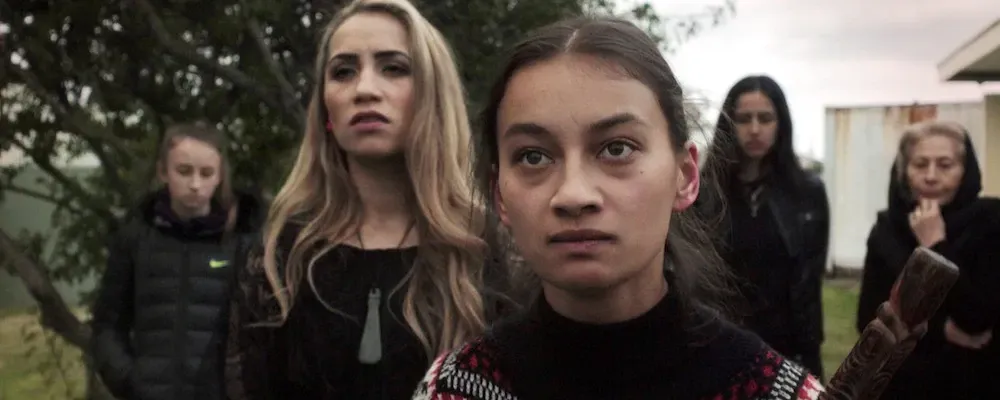
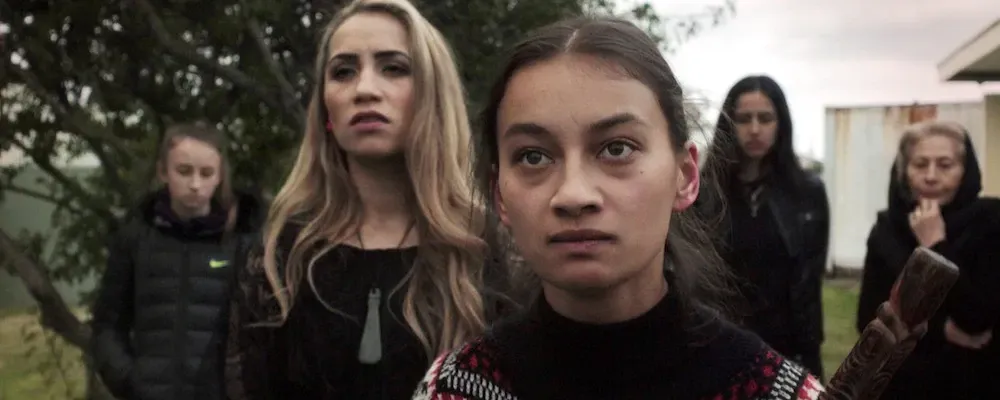
I believe storytelling is one of the most valuable traditions we have as humans. Through storytelling, we seek to understand creation, preserve our histories and teach our beliefs and values. We nurture relationships through the transfer of knowledge and we validate our experiences. We sustain communities by learning lessons and finding common ground. We open pathways to cultural awareness and understanding when we interrogate ourselves and everything around us. Storytelling is how we identify who we are.
Mother’s stories
When I think about the story of Matariki and the six sisters, I think about my daughter, Vavaki, visiting my mother for the first time at my home in Papua New Guinea. My mother, Robin, would tell her stories about all the places she had taught in around Papua New Guinea and about all the people she had met. She would tell stories of how she came to make Papua New Guinea her home and how she met my dad, how his village welcomed her through our traditional ceremony into the tribe when they married. The stories she learnt from my mother, Vavaki would pass on to her family. Sadly, this is not a reality for me or Vavaki. My mother passed away 3 years before she was born. But this is my story. It belongs to me and it is the story that I would tell if I were given the chance to.
My story isn’t any more important than anyone else's story, but it is important to me because it is part of who I am. There is nothing of greater importance to me than that my children are able to see that stories they can relate to are being told and are being celebrated in the same way as all stories. For me, that means seeing themselves on the big screen.
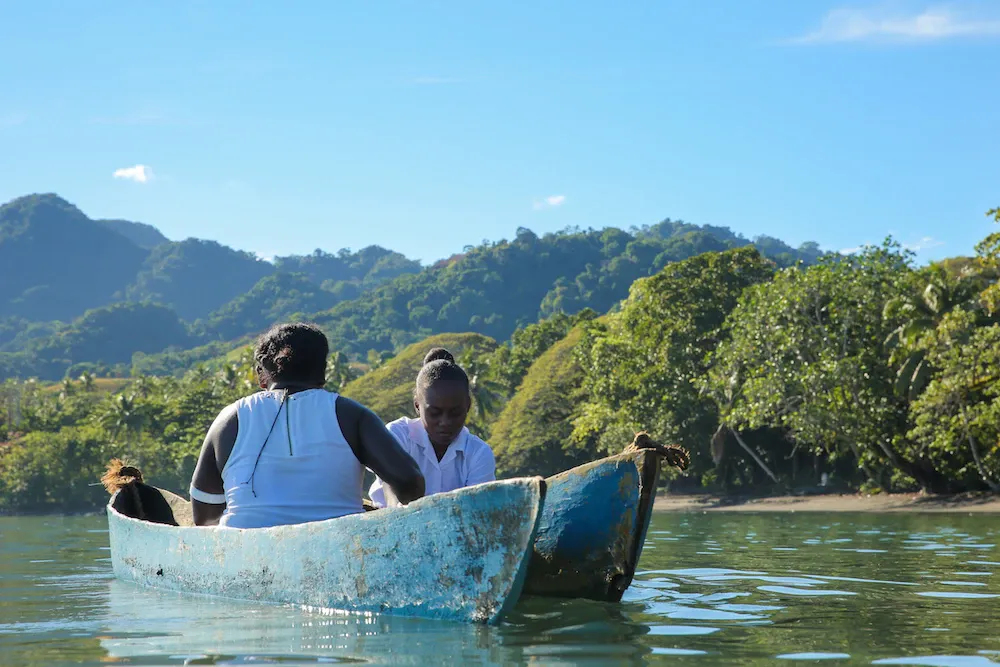 Vai - Solomon Islands, Written & Directed by Matasila Freshwater.
Vai - Solomon Islands, Written & Directed by Matasila Freshwater.
Collaborating on collective stories
So how do we tell our stories on the big screen when, historically, some stories haven’t been deemed as important as others? When we work within a system that has been set up to favour the predominantly male western culture of storytelling? The amount of work and effort it would require for me to be able to get the money to write a script and produce my story alone was not feasible to me. It makes far more sense to work together with a group of storytellers with stories that are just as important as mine in order to create something that will make it onto the big screen.
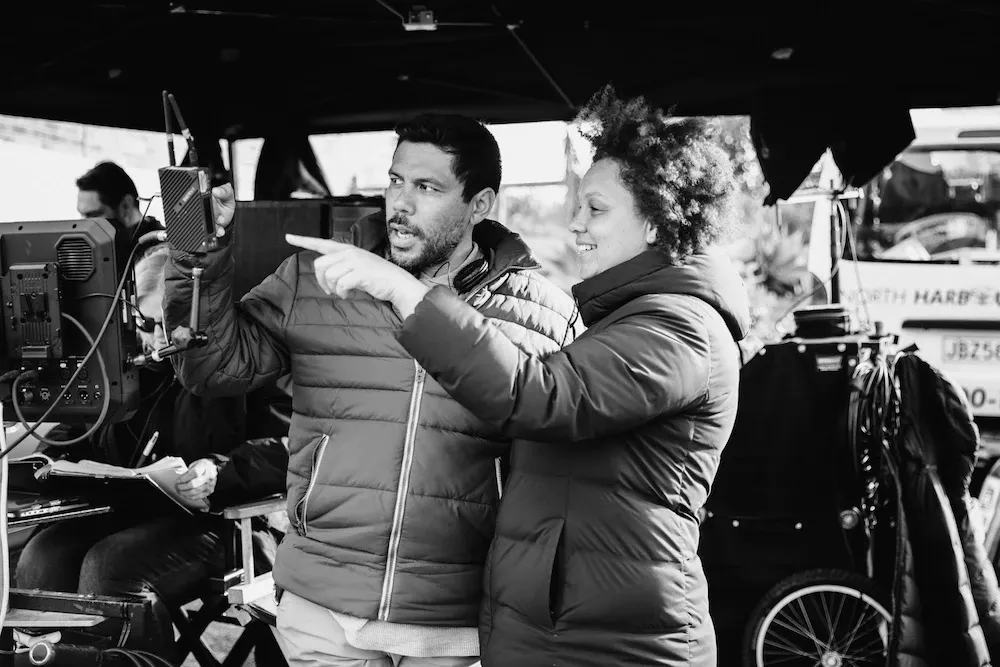
Kerry Warkia and director Kiel McNaughton on the set of The Legend of Baron To'a' (currently in post-production). Photo by Tom Hollow.
Working collectively is something that Pacific people have always practised, individuals work for the realisation of the group goals. So it made sense to me to bring this concept into my work, to integrate a Pacific Peoples world view. The female filmmaker collectives of Waru & Vai utilise this Pacific concept and are akin to the story of Matariki and her daughters. We journeyed together, we looked at our past for learnings, we reached out to our old people living and in spirit to guide us, we listened to each other in order to gain new knowledge, we used our individual unique skills to work as a collective to achieve the group goals and bring mauri to our stories. Those story clusters, like Matariki, continue to be passed on and shine brightly around the world.
Collectively we all have a responsibility to actively create space and opportunities that empower Māori and Pacific storytellers to tell their own stories because their stories matter to them and they matter to their people, and they should matter to us all. Stories have the potential to change our views. Stories have the ability to heal and empower. Stories can disrupt inequality.
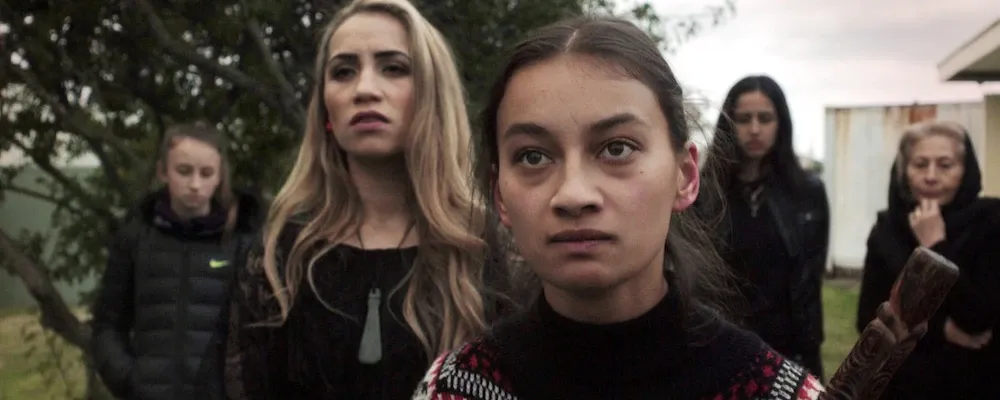
Waru - Mere, Written & Directed by Paula Jones.
Matariki and the six sisters
"Matariki and her daughters journey across the sky each year to visit their tupuna wahine (great grandmother) Papatūānuku (Mother Earth).
During this visit, each of the stars help Papatūānuku to prepare for the year to come, using their unique qualities or gifts to bring mauri (life force or energy) to her different environments. Whilst spending time with their kuia (grandmother), they also learn new skills and gain new knowledge from her, which they guard and pass on to others."
Story sourced from Te Papa Tongarewa
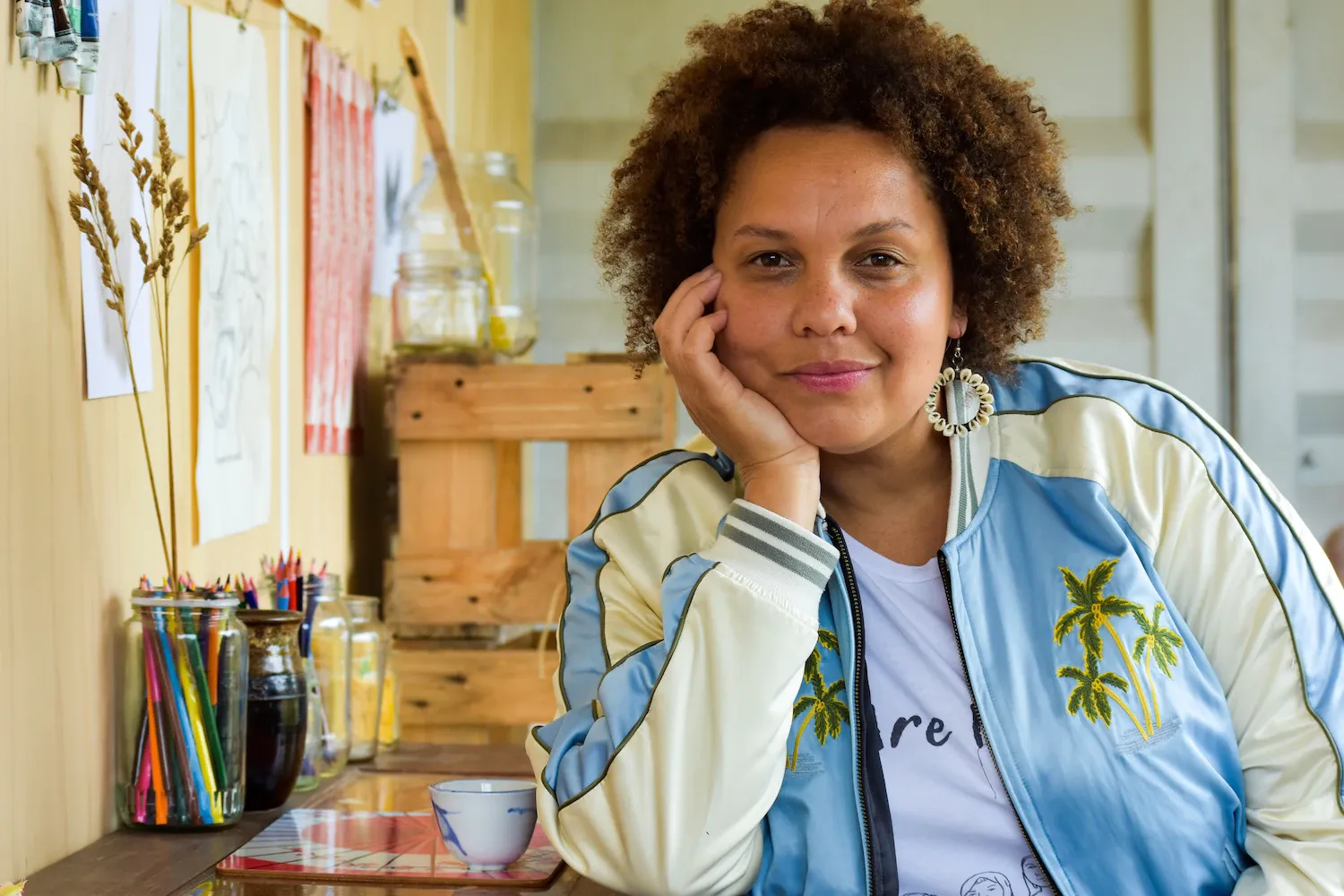
Kerry Warkia.